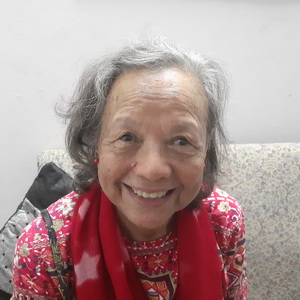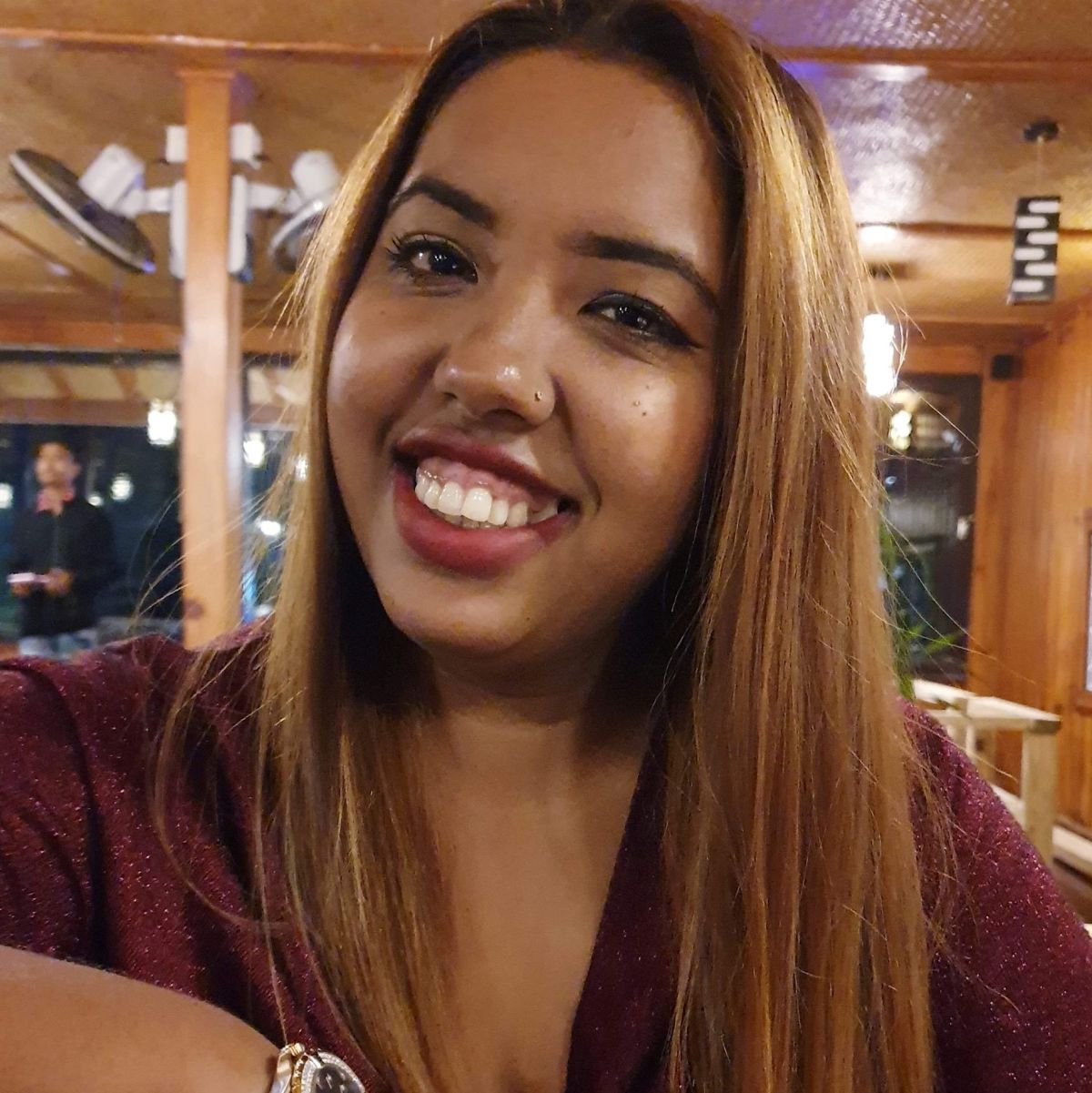Gender-Based Untouchability and Disaster Help in Nepal
Article 1 of our constitution says everyone is eligible for a dignified life. If women are considered untouchables every month, where is their dignity?
Nepal, Southern Asia
Story by Chandra Bhadra. Edited by Mira Kinn
Published on February 6, 2021.
Reading time: 5 minutes
This story is also available in 



As a professor emeritus at Tribhuvan University in Kathmandu on Gender, I spent at least half of my 70 years studying the challenges women face in society. I have also experienced these challenges first hand. When I was growing up, the feeling of impurity when having my period was ingrained in me. I was really scared to do Puja[1] or go to the temple. In Nepal, when you have your period, you have separate beds and utensils. You are not even allowed to touch the carpet that other people share. In some areas, women and girls stay in shanty sheds away from home. In other words, women on their periods are ‘untouchable’[2].
In my parents’ home it was not like that, but when I went to my uncle and aunt’s home I was treated as impure when I had my period. I felt awful, like being degraded and losing my dignity. This was especially hard when I was a teenager and shy anyway.
But, let me tell you how my friends and I tackled period hygiene after the 2015 earthquake[3]. When the tragedy happened, everyone ran for their lives with only the clothes they were wearing, nothing else. Women did not have anything to use during menstruation. They started to get relief goods, and many women's groups working in disaster help gave disposable pads, but they were not environmentally friendly and impractical as a high quantity was needed. I was a professor then and worked with students to prepare and distribute “menstruation bags” to earthquake-affected women. This started my passion to protect women from untouchability in Nepal.
After thinking and talking to some friends, we started preparing and distributing reusable sanitary pads. We put 4 reusable pads of cotton clothing, two pieces of underwear, safety pins and soap in bags and distributed them to women. It cost 300 Nepalese Rupees per bag (2.50 USD), but it would last for a whole year.
I wrote e-mails to colleagues and friends, introducing them to the idea with some informal research. We started a fundraiser. In three weeks’ time, we collected 350,000 Nepalese Rupee (2,887.15 USD). Then, the medical college in Dharan, a major city in Eastern Nepal, wanted to participate. My students and others got involved, and the idea spread to the city of Pokhara, where students from Pokhara University and Prithvi Narayan Campus participated in “Menstruation Bag” making and distribution in the epicentre district of Gorkha.
I received 1,000 USD from fellow members of “Sociologists for Women in Society”[4]. We got connected with “Nagarik Awaz,” a peace NGO group taking relief goods to affected villages[5] and started community dialogues with men and women in the communities that received help. We had interesting findings: Men and women both feel that menstruation is a natural and biological occurrence, and there is no untouchability about it, but society dictates that menstruation is impure.
From a legal point of view, I had an influence when the Nepali government was deciding on a new constitution in 2015. I gave a presentation to the parliamentarian committee[6] for women, children and the senior citizens, advocating to make gender-based untouchability illegal in the constitution. Although the committee members were positive during the consultation meeting, the Constitution-2015 passed an unclear law, stating that people cannot be discriminated against “on the basis of physical condition," but not spelling out “untouchability during menstruation” specifically.
My colleagues and I pressured the government. I wrote an article[7], demanding for a provision against untouchability during menstruation. So far, the wording of the law has not changed.
Article 1 of our constitution says everyone is eligible for a dignified life. If women are considered untouchables every month, where is their dignity?
To learn more about menstruation taboos, read When Your Body and Beliefs are at Odds by Shakila Dhauntal and Gender-Based Untouchability by Pabita Timilshina.
[1] A praying ceremony and the ritual of daily worship in Hindu tradition. It was seen as impure, and still is today, attending the Puja while having your period.
[2] This practice is called Chhaupadi system in Nepal, women are considered as “impure” during their menstruation and banned to hats or to live outside during this time. Officially it is not legal anymore but in some rural areas it can still be found.
[3] The “Nepal earthquake of 2015, also called Gorkha earthquake, was a severe earthquake that struck near the city of Kathmandu in central Nepal on April 25, 2015. About 9,000 people were killed, many thousands more were injured, and more than 600,000 structures in Kathmandu and other nearby towns were either damaged or destroyed.”
[4] A US-based feminist group for women sociologists: https://socwomen.org
[5] https://www.nagarikaawaz.org.np
[6] Sub-legislative organizations
[7] https://kathmandupost.com/opinion/2015/07/30/legal-omission
How does this story make you feel?
Follow-up
Do you have any questions after reading this story? Do you want to follow-up on what you've just read? Get in touch with our team to learn more! Send an email to [email protected].
Talk about this Story
Please enable cookies to view the comments powered by Disqus.
Subscribe to our Monthly Newsletter
Stay up to date with new stories on Correspondents of the World by subscribing to our monthly newsletter:
Tags
Topic: Gender
> India
Breaking boundaries: A lifelong journey to fight injustices in India
A story by Sanjoli Banerjee
7 min
Sanjoli grew up in a family dedicated to gender equality and climate activism - and now runs a respected NGO concerned with these issues herself. Still, being a young, female changemaker from a rural area, she is heard far less than others in her position. Read more...
> Netherlands
When your Body and Beliefs are at Odds: the Religious Taboo of Menstruation
A story by Shakila Dhauntal
4 min
I know that talking about these traditions is hard. Yet, discriminatory practices will continue unless they are addressed. Read more...
> Germany
Growing up in a Straight World
A story by Luca Kraus
3 min
Retrospectively, it comes as no surprise. Everything around me gave me the impression that there was only one sexuality within society. From tv shows I watched to books I read, couples and families I knew, conversations with my friends, and things that we were taught in school. Read more...
Explore other Topics
Get involved
At Correspondents of the World, we want to contribute to a better understanding of one another in a world that seems to get smaller by the day - but somehow neglects to bring people closer together as well. We think that one of the most frequent reasons for misunderstanding and unnecessarily heated debates is that we don't really understand how each of us is affected differently by global issues.
Our aim is to change that with every personal story we share.
Community Worldwide
Correspondents of the World is not just this website, but also a great community of people from all over the world. While face-to-face meetings are difficult at the moment, our Facebook Community Group is THE place to be to meet other people invested in Correspondents of the World. We are currently running a series of online-tea talks to get to know each other better.


























